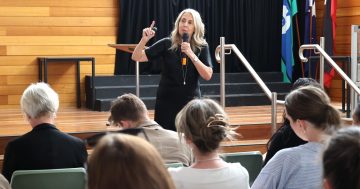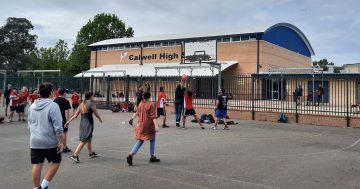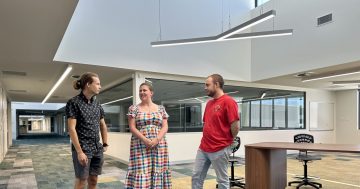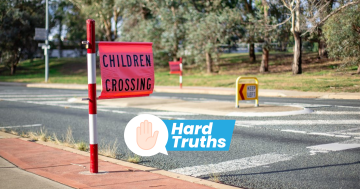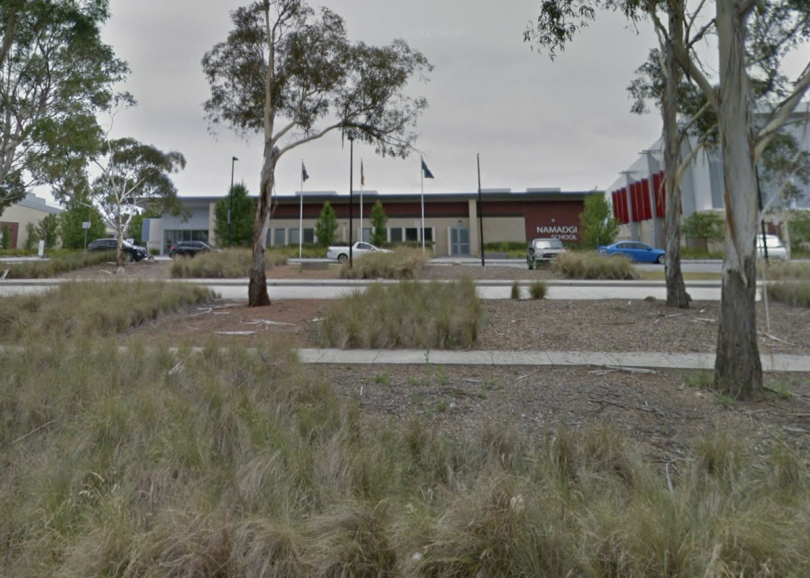
If a student tests positive for COVID – either through a PCR or RAT – the school must be notified. Photo: Google Maps.
ACT students will return to on-campus learning as planned this year, but the evolving and ongoing Omicron situation means back-to-school will look and feel a little different.
New students will start on 31 January at most schools, and returning students will go back on 1 February.
Here’s everything you need to know ahead of school going back.
How will rapid antigen tests be used?
The ACT Government intends to procure and supply enough rapid antigen tests so that every student, teacher and educator at all schools can acquire two testing kits per week for at least the first four weeks of term.
However, due to likely time constraints and supply chain pressure, RATs won’t be ready for collection until the end of week one, and using them as part of a surveillance testing regime won’t be compulsory.
Schools will contact parents to let them know how kits can be collected.
If a student tests positive with either a PCR or RAT, their school must be notified.
Who will need to wear a mask?
Similar to arrangements in place last year, all staff, visitors and students in years 7 to 12 must wear a mask on campus unless eating or drinking.
Students in years 3 to 6 are encouraged to wear a mask, but it’s not compulsory, and mask-wearing isn’t recommended for young children.
In some situations, masks can be removed if seating arrangements allow for physical distancing of at least 1.5 metres.
Disposable masks should be changed during lunch breaks or every four hours, and reusable masks should be washed at the end of each day.
Students can wear either cloth masks or surgical masks.
What’s going to happen if there’s a case on campus?
First, anyone with symptoms is asked not to attend campus.
Students who attend schools with symptoms will be isolated until a parent or caregiver can collect them.
If a student has attended campus while infectious, the school must identify the dates and locations visited by the case. Affected cohorts will be notified.
In most cases, school contacts will only need to take a COVID-19 test if they have symptoms – and will be able to keep attending school as usual – but there may be cases where a rapid antigen test is advised before students return to school the next day.
Students and teachers will no longer be classified as close contacts if their only contact with the positive case was in a school environment.
But anyone who is identified as a high-risk close contact will still need to follow the seven-day quarantine advice and not attend campus.
However, these guidelines can change, and there may be cases where the school may need to move to remote learning for some cohorts depending on the circumstances.
What about early childhood centres?
Early learning education and care settings will need to do a risk assessment once they have been notified of a positive case visiting their centre.
This is because people may be considered at higher risk of exposure due to a lack of social distancing and the fact that young children are unvaccinated.
High-risk contacts will need to quarantine for seven days from exposure.
How will staff shortages be managed?
Given there is not a large pool of casual teaching staff available, strategies such as combining classes, limiting and cancelling some non-essential activities, or providing supervision only will be used to combat shortages if teachers are required to quarantine.
In critical cases, cohorts and schools may switch to remote learning.
Can excursions and assemblies go ahead?
For the most part, no. Schools will try to limit interaction between school cohorts as much as possible.
Only required excursions will go ahead this term. No interstate excursions will be allowed.
Will there be any other changes?
Similar to last term, increased cleaning will be in place, students will learn outside as much as possible.
Most visitors won’t be allowed to campus, although kindergarten students can have two parents or caregivers on campus for their first day.
Students who are immuno-compromised or at high risk and unable to attend face-to-face learning will be supported to learn from home.














